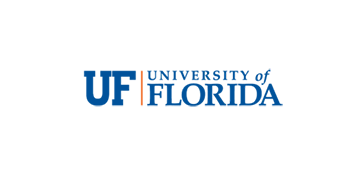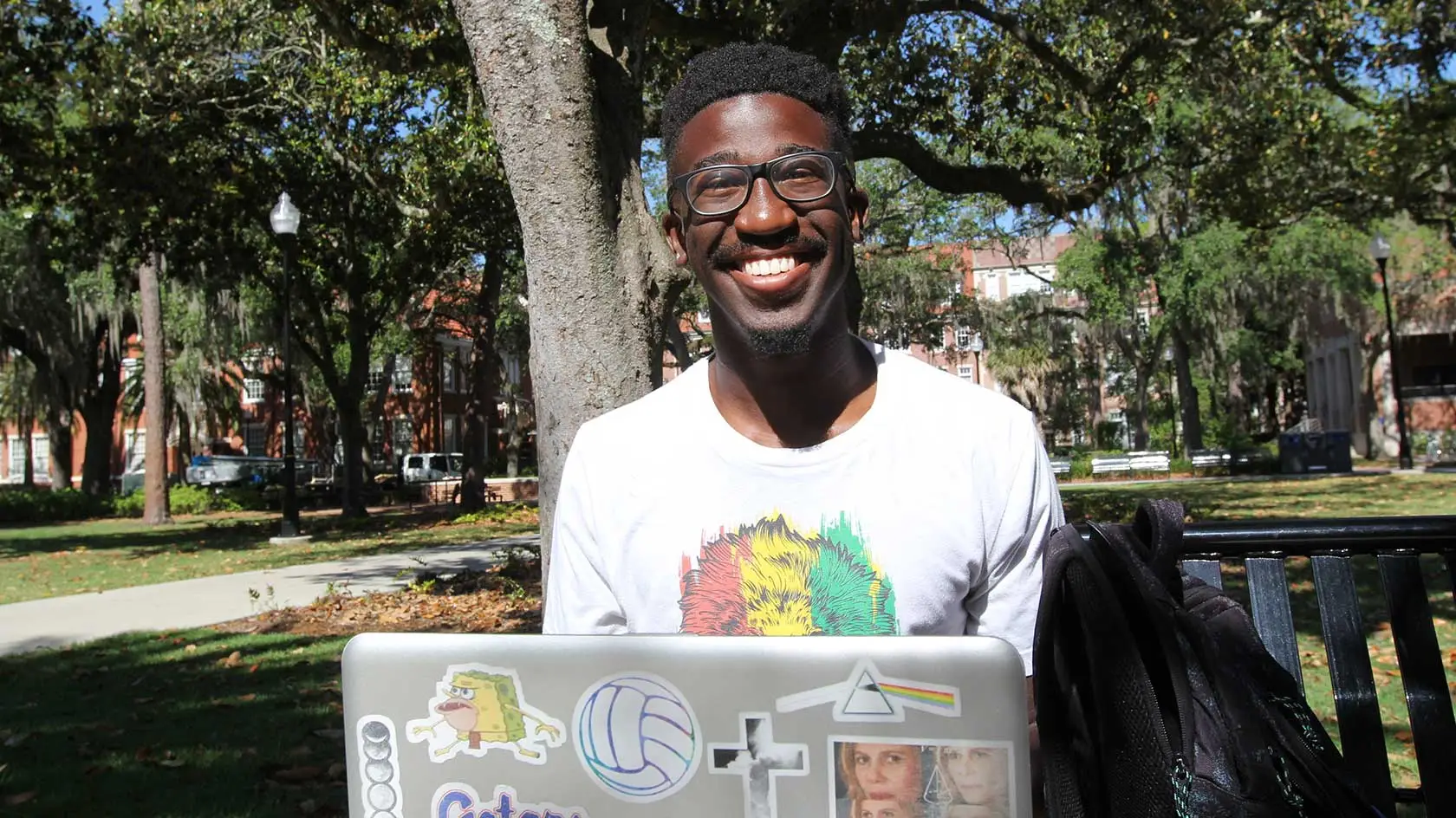
University of Florida

Executive Summary
In the past five years, the University of Florida (UF) has heightened its focus on improving the customer experience for the campus community–students, faculty, and staff. Administrators acknowledged that a positive customer experience directly correlates to improved student success, lifelong relationships with the university, and employee satisfaction; metrics that are fundamental to success in higher education.
Delivering on this goal of improved customer success, though, was not easy. UF’s underlying technical solutions included disconnected technologies and a heavy reliance on shared inboxes and distribution lists to communicate with constituents and manage information. Leadership within UF Information Technology (UFIT) identified these shortcomings and wanted a more connected and robust system for the UF campus. Salesforce was chosen as the platform to deliver that solution.
Brian Karcinski, Salesforce Solution Architect on the UFIT CRM team stated, “We needed to solve the communication problem because, like in many large public universities, everyone had way too many email addresses and distribution lists—there was too much noise and not enough impactful action.”
-
27departments using Salesforce
-
7,900+cases created each month
-
800Active Salesforce users (students, staff, applicants, and alumni)
Moving From Inefficient Communication to a Dynamic Case Management System
Having previously deployed Salesforce successfully within particular UF departments, Karcinski and the CRM team knew Salesforce could help streamline UF’s processes and communications university-wide. The CRM team started with a focus on student success by involving academic advisors and the Division of Enrollment Management. Then, the scope expanded to include the faculty and staff experience, as the CRM team onboarded units including UF’s Central Offices of Human Resources and Research, as well as the Division of Finance and Accounting.
“Ninety-five percent of all frustrations and inefficiencies relate to poor communication due to a reliance on shared inboxes and distribution lists,” said Karcinski. “Our goal is to retire these siloed communication methods and transition to managing our work using cases created by Salesforce, whereby our staff can record, manage, and track work collectively.”
Using Salesforce, UF gained:
- A case management system that automatically creates a case when a student, faculty member, or staff member submits an inquiry
- An easy-to-use interface for teams to access, work, and collaborate on cases
- A dashboard for administrators to analyze key metrics and track staff productivity
- The ability to track, report, and analyze all cases by criteria such as type, assignee, and time to close
“With Salesforce we no longer have to settle. We are finally getting what our office needs and what our students deserve.” Jenna Gonzales, Interim Director at the Disability Resource Center, University of FloridaUniversity of Florida
Success Spotlight: Increasing Equity For Students with Disabilities
The success of UFIT’s improved customer success efforts are most clearly demonstrated through its work with the Disability Resource Center (DRC). UF has more than 4,500 students registered as requiring accommodations for a disability. The DRC was managing these students using email and a standalone data management system that was not built for managing students with disabilities. This led to tremendous inefficiency.
“To record our communications with students, we employed 44 student assistants to copy and paste 600-700 emails weekly from the center’s nine learning specialists’ email inboxes and a shared inbox into our data management system,” shared Jenna Gonzalez, Interim Director at the DRC. The department needed 20-25 more staff at the beginning of a semester, when students needed the center to create and print accommodation letters for their instructors. Plus, Gonzalez and her team would often have to scramble to help a student when a staff member left the department or was away from the office, as it was difficult to retrieve the necessary information.
Explore the Solutions:
Improving the Experience for Students with Disabilities
Since integrating Salesforce, Gonzalez and her DRC team approach their work in radically different ways. Now communications are managed through a series of connected forms, which generate cases and other records directly in Salesforce. The DRC team collectively determines the best person to work with each student to manage and resolve the cases—all of which is done in Salesforce.
The team’s use of Salesforce has expanded well beyond just managing communications. When a student registers with the department, Gonzalez and her team review the student’s information and assign accommodations to that student. They are using Salesforce to track all accommodations and the student’s diagnosis. They are also using it to empower students with disabilities to advocate for themselves by giving them the tools to take greater control.
“I love the new accommodation system because it allows me to tailor my needs to the classes that I’m taking. Now, I have the freedom to apply certain accommodations to individual courses rather than send my entire accommodation list to all of my professors,” said Robyn Clarke, Rising Senior in the College of Journalism and Communications, majoring in Sports and Media.
“We have nine learning specialists working in Salesforce on cases, and it’s seamless. There’s not one issue or problem. Everyone covers everybody and watches out to ensure that all students get answered. When staff are out of the office, students don’t lose. There’s no missing a beat because everything is just there,” said Gonzalez.
With Salesforce, the DRC has reduced its budget, increased efficiency, improved the student experience, and increased the quality of work by:
- Powering more equitable access to education for the more than 4,500 students registered as having a disability
- Empowering students to create their own customized accommodation letters for instructors. From an automatically-created accommodations list, students can select what they need or wish to share. For example, a student using a wheelchair may not want to mention housing-related accommodations to their math professor or a student with Type 1 diabetes may only choose to communicate their glucose monitoring to an instructor who teaches a course at a certain time or for a long duration
- Enabling the DRC learning specialists to focus on building relationships with students by eliminating much of the administrative burden
- Freeing up 44+ student assistants to focus on more productive, meaningful work
- Facilitating a work environment that encourages staff collaboration. When staff members are out of the office, others can access their cases and immediately jump in to help the student
- Minimizing the time required to respond to a grievance because with Salesforce, the required trusted information can be gathered in minutes—rather than hours as it was previously
Salesforce also empowers Gonzalez herself to be proactive. With the trusted data and metrics attained through Salesforce, Gonzalez is able to identify the schools with the largest number of students with disabilities and approach those deans to have active conversations about successfully supporting DRC students.
“With Salesforce, we no longer have to settle. We are finally getting what our office needs and what our students deserve,” said Gonzales.
Enhancing University-Wide Departmental Effectiveness
Success like those within the DRC can be found across UF’s campus. Over the past three years, UF’s use of Salesforce has expanded significantly.
UF now has:
- 27 departments using Salesforce
- 800 active Salesforce users that span students, staff, applicants, and alumni
- An average of 7,900 cases created each month
- 1.1 million contacts
- 1 million cases
- 2.35 million Education Data Architecture (EDA) affiliations, such as course connections and program enrollments
In addition to improving communication, Salesforce is presenting data in a way that is informative and actionable. Karcinski shares that he and his colleagues across the university now:
- Have detailed insight into who needs what and when, which informs when to provide additional training, documentation, and support
- Understand which team members are carrying the heaviest loads and can respond by leveling out the work
- Communicate useful information, such as that data indicates that the advising office is the least busiest from 8-10 a.m.; so that departments can then encourage students to visit at these slower times to avoid waiting
- Share information between departments as appropriate
- Looking ahead, Karcinski and the CRM team are focused on building greater efficiencies around research.
They are currently tying 80,000 to 90,000 awards and proposals to research records contained in Salesforce. “Within UFIT, we focus on finding the right tool for the job–most often the right tool is Salesforce” said Karcinski. “We are not limited with Salesforce; what you can accomplish with Salesforce is tremendous.”
Accelerate Your Digital Transformation

About the University of Florida
At Florida, we’re feeding communities, healing coastlines, exploring space, curing diseases, powering cities, building industries and imagining wonders.
The ideas born here gather steam and make tangible impacts. Florida is among the nation’s leaders in technology transfer, turning discoveries into companies, products and jobs.